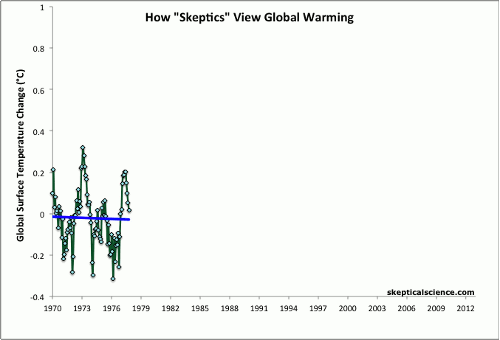Yeah Im his grandpa. Actually no. I just understand and respect science.
Some literature you yourself posted concluded we should expect, on average, two decades every century with a flat warming trend. Sure its a surprise when it happens, but it doesnt cast doubt on our understanding of AGW. Get back to me in 20 years if the trend hasnt picked up again.
The guide on
the state of climate change science recently published by the US and UK national science academies is worth a look.
"Decades of slow warming as well as decades of accelerated warming occur naturally in the climate system. Decades that are cold or warm compared to the long-term trend are seen in the observations of the past 150 years and also captured by climate models. Because the atmosphere stores very little heat, surface temperatures can be rapidly affected by heat uptake elsewhere in the climate system and by changes in external influences on climate (such as particles formed from material lofted high into the atmosphere from volcanic eruptions). More than 90% of the heat added to Earth is absorbed by the oceans and penetrates only slowly into deep water. A faster rate of heat penetration into the deeper ocean will slow the warming seen at the surface and in the atmosphere, but by itself will not change the long-term warming that will occur from a given amount of CO2. For example, recent studies show that some heat comes out of the ocean into the atmosphere during warm El Niño events, and more heat penetrates to ocean depths in cold La Niñas. Such changes occur repeatedly over timescales of decades and longer. An example is the major El Niño event in 199798 when the globally averaged air temperature soared to the highest level in the 20th century as the ocean lost heat to the atmosphere, mainly by evaporation.
Recent studies have also pointed to a number of other small cooling influences over the past decade or so. These include a relatively quiet period of solar activity and a measured increase in the amount of aerosols (reflective particles) in the atmosphere due to the cumulative effects of a succession of small volcanic eruptions. The combination of these factors, both the interaction between the ocean and the atmosphere and the forcing from the Sun and aerosols, is thought likely to be responsible for the recent slowdown in surface warming.
Despite the decadal slowdown in the rise of average surface temperature, a longer-term warming trend is still evident (see Figure 4). Each of the last three decades was warmer than any other decade since widespread thermometer measurements were introduced in the 1850s. Record heatwaves have occurred in Australia (January 2013), USA (July 2012), in Russia (summer 2010), and in Europe (summer 2003). The continuing effects of the warming climate are also seen in the increasing trends in ocean heat content and sea level, as well as in the continued melting of Arctic sea ice, glaciers and the Greenland ice sheet."

























